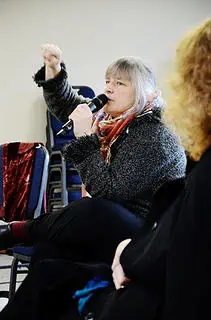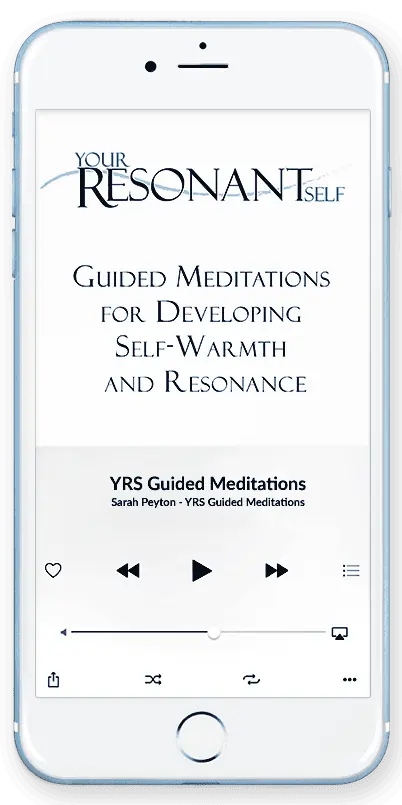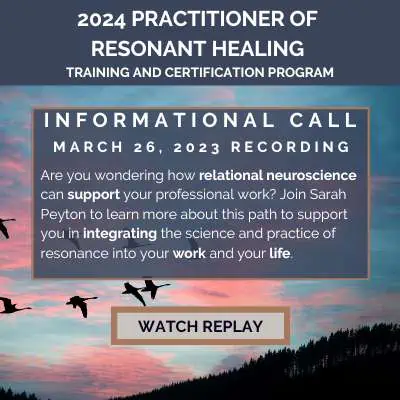The Empathy Provider and Facilitation Series
This collection of nine webinar presentations examines the past several years of Sarah’s research into trauma and how it impacts how we show up with others. Sarah shares how we might use resonance, somatic empathy and self-warmth to better hold space for both ourselves and others.
$89.99
Category: Learning Collections
Tags: attachment, for healing practitioners
This 9-module Facilitation Series includes individual presentations (including visual slides with research notes, audio and sometimes video) where Sarah looks at the ways that how we teach/hold space for others is impacted by trauma and how our work can be improved through resonance and self-warmth.
Included in this collection:
- Attachment: Styles in Facilitation and Empathy: While the predominant cultural message is that facilitators, therapists, teachers, and other supporters are supposed to leave their own humanity at the door and show up with only their left-brain rationality, there are huge benefits to whole-brained/whole-hearted connection and facilitation. This webinar explores how attachment shows up in facilitation and how we can hold awareness of our patterns while holding space for others.
- Laughter and Empathy: Curious about what’s going on in the brain in relation to laughter? Join Sarah in the discovery of the meaning of laughter and humor, what makes people laugh, and the role that resonance plays in our experience of this physical expression of happiness, delight and even joy.
- Tears, Crying and Empathy: Do you ever wonder about the experience of crying and all the nuances of tears and what they serve? In this webinar, Sarah shares about the nuances of tears, what makes people cry, and the role that resonance plays as we bring our exploration of emotion into the realm of tears, sorrow and connection.
- Boundaries and Empathy: The fuzzy landscape between self and other is our territory for this webinar. Join Sarah for a look at the relational neuroscience of boundaries and how to maintain a solid sense of self while being in close relationship with others.
- Personal Distress: In this webinar, Sarah Peyton shares about regulating emotion, why it can be so difficult for us, and how self-resonance can support us on the path.
- Anger: The aftermath of anger explosions, temper tantrums, or even tiny escapes of irritation or rage can leave us feeling bewildered and disoriented. Join Sarah in looking at our patterns of reactivity (both into and away from anger) with warm curiosity and exploring how the power of resonance can transform our brains.
- Trauma, Dissociation and Empathy: Curious about the experience of dissociation and how resonance can help? This webinar explores the ways in which trauma necessarily creates dissociated neural networks, and offers approaches to take in reclaiming those neural networks and their wisdom for the self.
- Transference, Entanglement and NVC: Our brains are so complex, it’s no wonder we can get so easily entangled, both within our own brains and with others. Join Sarah Peyton for a look at transference, entanglement, and how we can heal through naming our experience and repairing when rupture happens.
- Wisdom: While we can often fixate on what we lose as we age, ever wonder about what there is to gain and how we can claim our own wisdom and contribute to others in the 21st century? In this webinar, Sarah explores what changes in the brain as we age and for a celebration of the richness of aging.
Link to course(s)
Anger and Reactivity: the Power of EmpathyAttachment Styles in Facilitation and Empathy
Tears and Crying: IPNB and Empathy
Laughter: IPNB and Empathy
Wisdom
Boundaries and Empathy: How to Move Toward Healthy Differentiation and Linkage
Trauma, Dissociation and Empathy
Personal Distress – When Empathy is Hard
Transference, Entanglement and NVC







